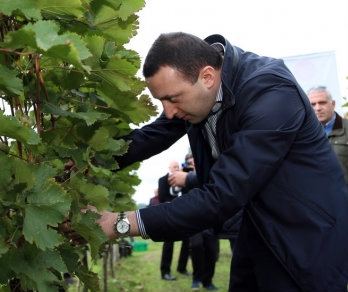
TBILISI, DFWatch–The Georgian government may change a new controversial law on immigration that has caused a wave of confusion and irritation in the country’s expat community.
Prime Minister Irakli Garibashvili said this during a visit to the eastern Kakheti region in connection with the traditional grape harvesting, ‘rtveli’, on Saturday.
He told journalists that if any defects become apparent after the enactment of the new law, ‘we’ll surely correct it.’
Since coming into force on September 1, the new law on immigration has caused many problems for foreigners studying, working or residing in Georgia.
The new law significantly tightens immigration regulation, which was extremely liberal during the Saakashvili era. In practice, no permission was needed to take up residency in Georgia; as long as a person was not in violation of visa rules, he or she could stay indefinitely, without the need for a separate residency permit, though such a permit could be obtained if needed for tax or other reasons. For most westerners, this meant that one only had to leave Georgia with certain intervals – in the beginning once every three months, but later once a year – to not violate the rules about visa free visits.
The lax rules attracted many people from Europe and North America who came for shorter or longer duration and bought property in Georgia or set root here in other ways. Also, many immigrants came from Syria, Iraq and Egypt. There are also many people from Turkey residing permanently in Georgia who run hotels, cafes and other small and medium-sized enterprises.
With the new law, Georgian authorities now have the right to turn down an application for permanent residency, and there are many accounts that it has used this power and denied many foreigners to stay permanently.
Recently, another law was amended soon after coming into force: The law prohibiting the sale without doctor’s prescription of more than 5,200 medicines. Less than two weeks after the enforcement of the law, on September 11, the health minister, Davit Sergeenko, had to change it and added 772 medicines to the list of those allowed sold without a prescription.

